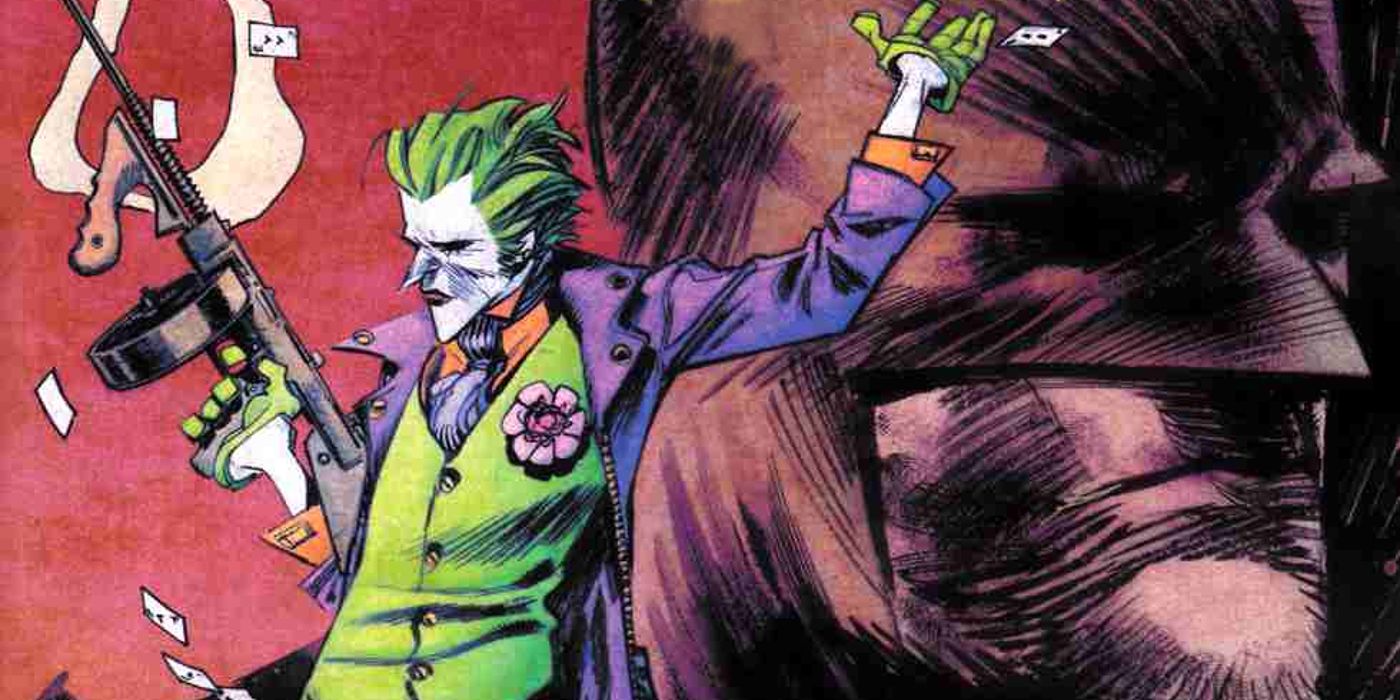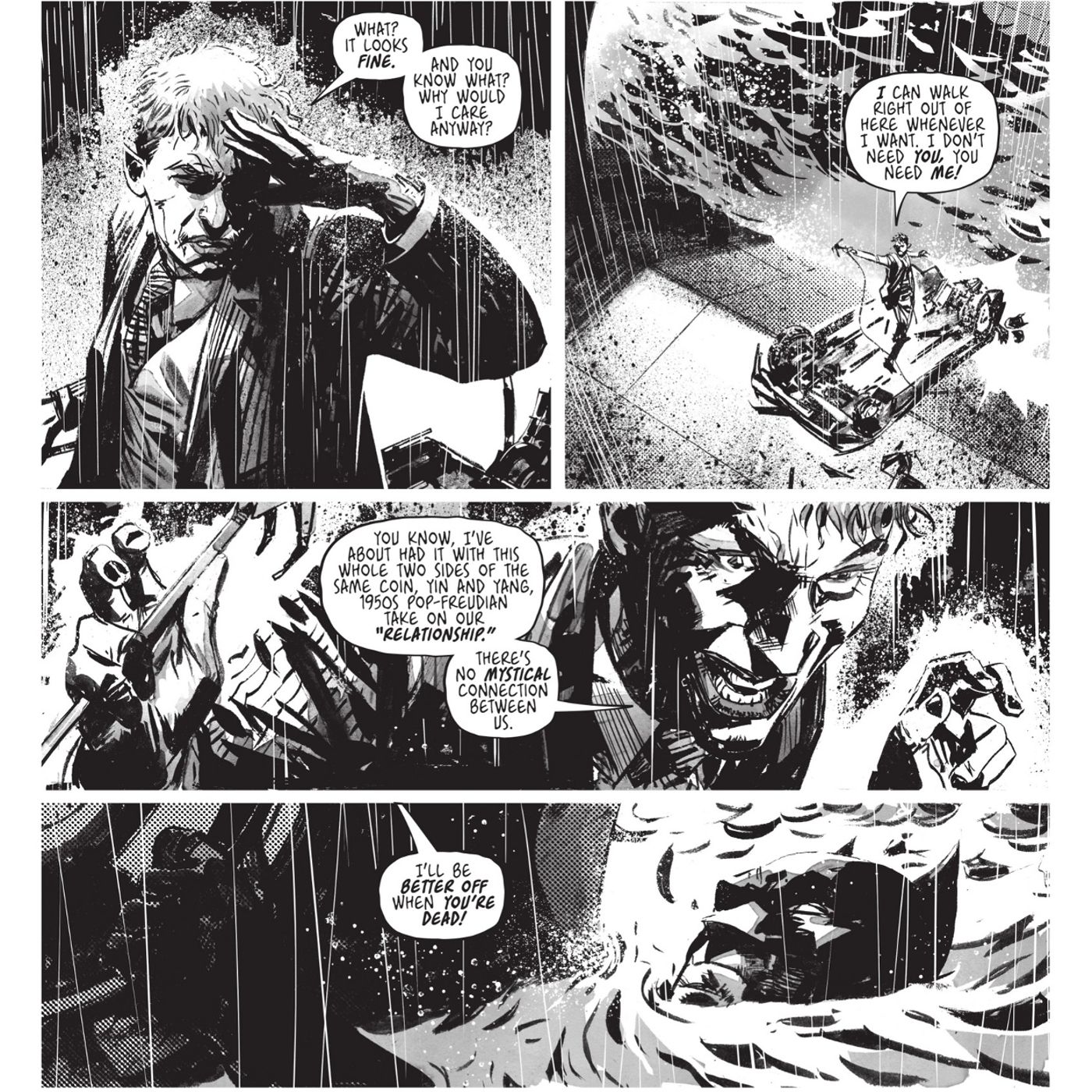Warning! Spoilers for Future State: Gotham #9!
While Batman and Joker have long been held up as DC Comics’ most co-dependent superhero-villain dynamic, where one derives a large portion of his purpose from opposing the other, Joker recently pumped the brakes on this psychoanalysis. In no uncertain terms, he dismisses the Bat as a mere nuisance, already speculating on how his designs would change and his fortunes would improve were the World’s Greatest Detective out of the picture. This shows an autonomy of purpose that makes a joke out of the notion that Joker only exists as Batman’s foil.
The well-documented dichotomy between the two has extended so far as to suggest that neither the iconic hero nor his equally iconic villain would exist if not to present an antithesis to the other. On the strength of this belief, Batman knows killing Joker would make everything worse. Instead, he needs to remain engaged with him in perpetuity. Joker's link to Batman is even stronger, as has been established in signature Batman stories like Frank Miller’s Batman: The Dark Knight Returns, where Batman’s reappearance causes Joker to emerge from the catatonic state he had been in for years. There is also the Going Sane story arc by J.M. De Matteis, Joe Staton, and Steve Mitchell, where Joker simply returns to sanity when he believes Batman to be dead.
Despite this, the Clown Prince of Crime has suggested that he would be okay in a world without Batman, as he is content to watch him drown in a back-up story in Future State: Gotham #9 by Gabriel Hardman and Corinna Bechko. In doing so, he shows an acute awareness of what has been said regarding his dynamic with the Caped Crusader, despite the fact that Joker’s criminal version existed long before Batman. He scoffs at the notion that there is some higher connection between the two. “You know, I’ve about had it with this whole two sides of the same coin, Yin and Yang, 1950s pop-Freudian take on our ‘relationship,’” he says. “There’s no mystical connection between us. I’ll be better off when you’re dead.”
This scenario shows that Joker has engaged with Batman long enough that he wants the Caped Crusader to die only on his own terms. His refusal to kill Batman may not be because he is holding back on an existential level, but simply because he hasn’t found the right circumstances that match his twisted sense of humor or showmanship. Further, his plans for when he is finally rid of his foe only include more killing – a stark rebuttal to those stories where he loses his motivations entirely once Batman isn’t around.
More than he needs Batman, Joker needs an audience to witness his kills and thrills, and he has just as easily had this need filled by tormenting the likes of Jim Gordon, Superman, Lex Luthor, and others. Philosophically, he may view himself as a predator playing with his prey rather than playing the chaotic half of the eternal struggle between chaos and order. Though Joker’s mind is far from predictable, he has shown that he balks at the unoriginal notion of existing and killing only as an antithesis to Batman’s rigid sense of justice and purpose.


